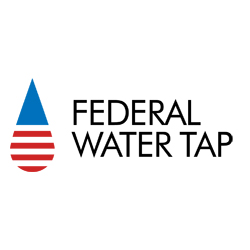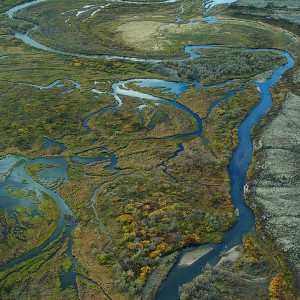Federal Water Tap, April 14: Energy Company Plans $2 Billion Natural Gas Pipeline in Pennsylvania
The American shale gas boom is more than drilling pads and fracking fluids. New pipelines are sprouting as well.
Williams Partners offers the latest entry in the race to funnel new supplies to market.
The Tulsa, Oklahoma-based pipeline giant notified federal regulators earlier this month that it wants to begin field surveys for the $US 2 billion Atlantic Sunrise project. The 286-kilometer (178-mile) pipeline would connect two existing natural gas pipelines in Pennsylvania and allow shale gas from the Marcellus formation to flow to customers in the Southeast and the Northeast.
Williams hopes to have the line in service by 2017. The company has already signed agreements with gas shippers that cover 100 percent of the line’s capacity.
Reservoir Expansion, Senatorial Lobbying
Two House Democrats from California proposed legislation that would triple the size of Los Vaqueros, a reservoir that supplies water to Contra Costa Water District, east of the Bay Area.
The Contra Costa Times reports that the expansion would be completed in phases. How to add more storage capacity – whether by expanding old reservoirs, building new ones, or refilling aquifers – is a central debate in California this year during its worst-ever drought.
Meanwhile, in the nation’s capital, California’s senior Democratic senator is trying to rally Republican support for a bill to help San Joaquin Valley farmers.
The San Francisco Chronicle reports that Sen. Dianne Feinstein is close to the 60 votes needed for passage, but not there yet. The bill would then go to conference committee to be squared with a House GOP bill that sends more water to farmers but does so by tossing out federal environmental laws and overriding state statutes. Bad precedent, critics argue.
Chemical Safety
Legislation to reduce the risk of a chemical spill like the one in January that cut drinking water supplies to 300,000 West Virginians passed the Senate Environment and Public Works Committee.
The Chemical Safety and Drinking Water Protection Act, introduced by West Virginia Democrat Joe Manchin, requires inspections at least once every three years for chemical storage facilities, as well as a mandatory state-run monitoring program. As part of the program, owners of chemical facilities will develop emergency responses plans and share toxicity information with state officials and utility operators. The bill provides no funding for these requirements.
Klamath Water Supply
Farmers in the Klamath River Basin, which covers northern California and southern Oregon, will get 61 percent of their full irrigation supply, according to the Bureau of Reclamation’s 2014 operating plan.
Snow levels are low in the watershed, and the amount of water expected to run into Upper Klamath Lake this summer is just 46 percent of normal. After the irrigation withdrawal end in September, the lake will be less than 1 foot above a mandatory minimum water level needed for fish health.
Federal Energy Review
The Energy Department will hold two public meetings April 21 to learn about energy infrastructure in New England. The meetings in Hartford and Providence will inform a first-ever energy review, modeled after similar comprehensive assessments from the State Department and Defense Department. Submit comments via email to QERComments@hq.doe.gov.
The New England meetings are the second of six planned gathering. Others will be held in North Dakota, to discuss infrastructure constraints; in Portland, Oregon, to discuss western electricity transmission; in Louisiana, to discuss oil and carbon capture; and in Chicago, to discuss rail, barge, and truck transportation. The first meeting, regarding resiliency, was held Friday in Washington.
Federal Water Tap is a weekly digest spotting trends in U.S. government water policy. To get more water news, follow Circle of Blue on Twitter and sign up for our newsletter.
Brett writes about agriculture, energy, infrastructure, and the politics and economics of water in the United States. He also writes the Federal Water Tap, Circle of Blue’s weekly digest of U.S. government water news. He is the winner of two Society of Environmental Journalists reporting awards, one of the top honors in American environmental journalism: first place for explanatory reporting for a series on septic system pollution in the United States(2016) and third place for beat reporting in a small market (2014). He received the Sierra Club’s Distinguished Service Award in 2018. Brett lives in Seattle, where he hikes the mountains and bakes pies. Contact Brett Walton






Leave a Reply
Want to join the discussion?Feel free to contribute!